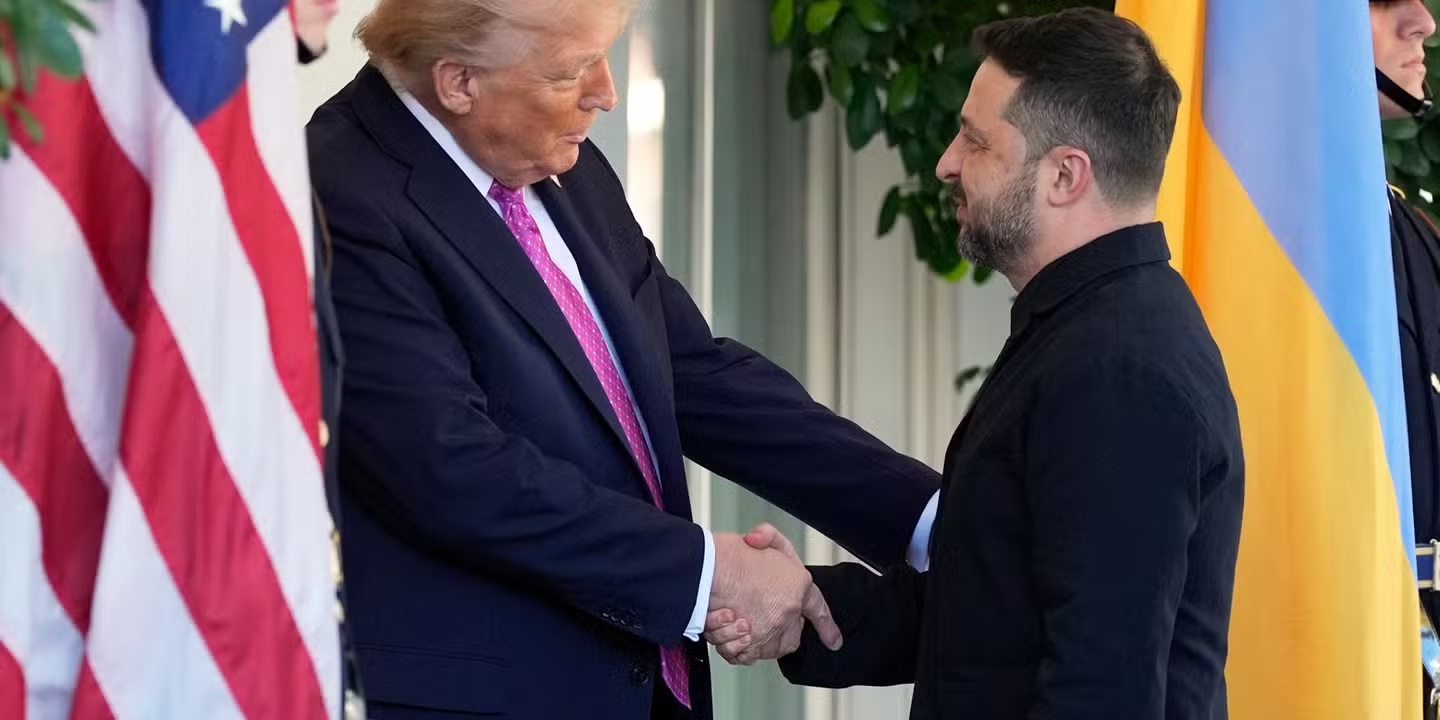In a volatile White House meeting that descended into shouting and expletives, Donald Trump reportedly urged Ukrainian President Volodymyr Zelenskyy to accept Vladimir Putin’s terms for ending the war — warning that Russia would “destroy” Ukraine if it refused.
How Trump’s “Deal-Maker” Instinct Turned Chaotic
According to multiple European and U.S. officials, Trump tossed aside Ukrainian battlefield maps and insisted Zelenskyy surrender the entire Donbas region to Russia.
Observers say the former president’s behaviour — oscillating between threats and half-hearted peace overtures — revealed his trademark zig-zag approach to foreign policy: impulsive, contradictory, and anchored more in theatrics than strategy.
While Trump initially dismissed Putin’s aggression, he abruptly pivoted after a phone call with the Russian leader, parroting the Kremlin’s language about “realities on the ground.”
Putin’s ‘Peace’ Offer and Ukraine’s Non-Negotiable Lines
Putin’s latest proposal, sources say, would allow Russia to keep all of Donbas in exchange for limited Ukrainian control of parts of Kherson and Zaporizhzhia — territories Russia invaded in 2022 but has struggled to hold.
For Ukraine, ceding Donbas remains a non-starter. “To give it to Russia without a fight is unacceptable for Ukrainian society,” said Oleksandr Merezhko, chair of Ukraine’s parliamentary foreign affairs committee. “Putin knows that. It’s about dividing us from within.”
Zelenskyy’s Frustration and Europe’s Unease
Zelenskyy, who had sought U.S. long-range Tomahawk missiles, left the White House “very negative,” according to European diplomats briefed on the talks. They described Trump’s tone as belligerent and dismissive, echoing his previous claim that Ukraine should show “gratitude” for U.S. aid.
European officials now worry Trump’s unpredictable stance could derail fragile Western unity just as Kyiv’s counteroffensive stalls and U.S. domestic politics heat up ahead of 2026.
The Bigger Picture: A New Phase of Trump’s Foreign Policy Zig-Zag
Trump’s willingness to echo Putin’s rhetoric one day and denounce him the next has left allies guessing.
His supporters call it pragmatic deal-making; critics see reckless inconsistency that undermines U.S. credibility.
For Ukraine — and for Europe — this zig-zag diplomacy could prove as dangerous as any missile.

